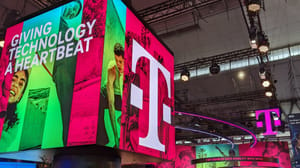Nokia lands trio of internet exchange upgrade projectsNokia lands trio of internet exchange upgrade projects
Nokia has been drafted in for network upgrades at three internet exchanges around the world – BBIX in Japan, LINX in the UK and ESpanix in Spain.
January 27, 2025

Nokia will plug in its IP routing tech to upgrade the BBIX internet exchange’s network in Japan to 400GE in order to handle growing data traffic, we’re told. It will deploy Nokia’s 7220 Interconnect Router (IXR) that runs the Nokia SR Linux Network Operating System (NOS), which is supposed to allow BBIX to ensure ‘high-quality network interconnection’ at a time when the number of high-bandwidth customers is rising.
Once deployed the upgrade will increase capacity and is also supposed to improve the stability, flexibility, and reliability of BBIX’s network operations. It will start in Japan this year and will be subsequently rolled out to other markets such as Singapore.
“Nokia is at the forefront of developing a comprehensive range of IP solutions in line with the evolving needs of the industry,” said Kent Wong, Vice President and Head of IP Networks, Asia Pacific at Nokia. “A thorough evaluation of our routing portfolio convinced BBIX of the strength of our solutions. We are delighted to work with BBIX to upgrade its network with our 7220 IXR that runs the SR Linux NOS to help our customer improve its operational efficiency while its customers benefit from a massively scalable and future-proof network.”
Hideyuki Sasaki, President & CEO at BBIX added: “Managing today's explosive internet traffic growth requires more than just capacity—it demands intelligent, reliable infrastructure. Nokia's solution provides the sophisticated capabilities we need to handle high-volume traffic while maintaining exceptional service quality. Their technology enables us to build a network infrastructure that excels in three critical areas: cost-effectiveness, reliable performance, and seamless scalability.”
Nokia will also upgrade The London Internet Exchange with its Deepfield DDoS security, which is supposed to deliver “advanced network protection capabilities against the latest and future generations of DDoS threats and attacks.”
Deepfield Defender is a software-based DDoS detection and mitigation solution that combines real-time network telemetry with something called Deepfield Secure Genome – which we’re told is a continuously updated data feed that tracks the ‘security context’ of the global internet.
Nokia released a report in October last year that claimed that the number and frequency of DDoS attacks have grown from one or two a day to well over 100 per day in many networks, the primary source being botnet DDoS attacks. Service and cloud providers therefore “need a more intelligent, cost-effective, scalable and adaptable defense strategy” – so goes the pitch.
The tech is also supposed to equip LINX with advanced network security analytics and reporting capabilities, and the exchange will initially offer the service to any network connected to their LON1 interconnection fabric in London.
Mike Hellers, Head of Product Development at LINX said: “With Nokia Deepfield, LINX will gain significant cyber security capabilities. We are proud to be the first UK IXP to deliver this next generation of advanced DDoS protection to our members, which, in turn, will be providing essential or critical services to their customers.”
Paul Alexander, VP and Country General Manager UK&I, Nokia added: “The past year has accelerated massive and transformative changes to the internet, bringing with it an incredible rise in DDoS attacks – they are more potent, frequent, and sophisticated than ever. With Nokia, LINX will obtain critical DDoS security-related visibility, leveraging Nokia Deepfield’s big data approach and using Deepfield Defender and 7750 DMS to access a more intelligent, cost-effective, scalable and adaptable defence strategy.”
Meanwhile the kit vendor has also signed a deal with ESpanix for what is apparently Spain’s first 400G connectivity for IXP customers. The upgrade uses Nokia’s Interconnect routers to deliver what it says is a more efficient and sustainable alternative to bundling multiple 100GE connections.
ESpanix will also leverage Nokia’s Photonic Service Switch to optimize bandwidth across its optical transport network, which means it can select the most optimised solution for the situation.
Amedeo Beck Peccoz, Head of Strategy, ESpanix, commented: “Our customers demand technology that is reliable and future-proof. Nokia’s solutions deliver the capacity and scalability we need to meet growing demand, enabling us to offer 400G connectivity to our members. With the support of Nokia, we not only become the most advanced IXP in the South Europe region, but our work together also aligns with our commitment to sustainability by reducing power consumption compared to traditional solutions.”
The project “addresses the increasing demand for high-capacity and sustainable network services” among ESpanix’s 180+ connected networks, which includes Internet ISPs, Content Service Providers, and national and international carriers. All ESpanix’s Points of Presence have been upgraded to 400G and are operational as of today, we’re told.
Last year Nokia announced it had contracts with 23 IXPs all in all, including Telehouse NYIIX, NL-ix, LINX, LINX NoVa, BIX, DE-CIX, France-ix, ESpanix, LINX Nairobi, TOP-ix and TREX. These include six of the world’s ten largest based on both peak traffic and number of members, apparently, which cumulatively transport close to 45 Tbps of traffic during peak times.
About the Author
You May Also Like










.png?width=300&auto=webp&quality=80&disable=upscale)


_1.jpg?width=300&auto=webp&quality=80&disable=upscale)